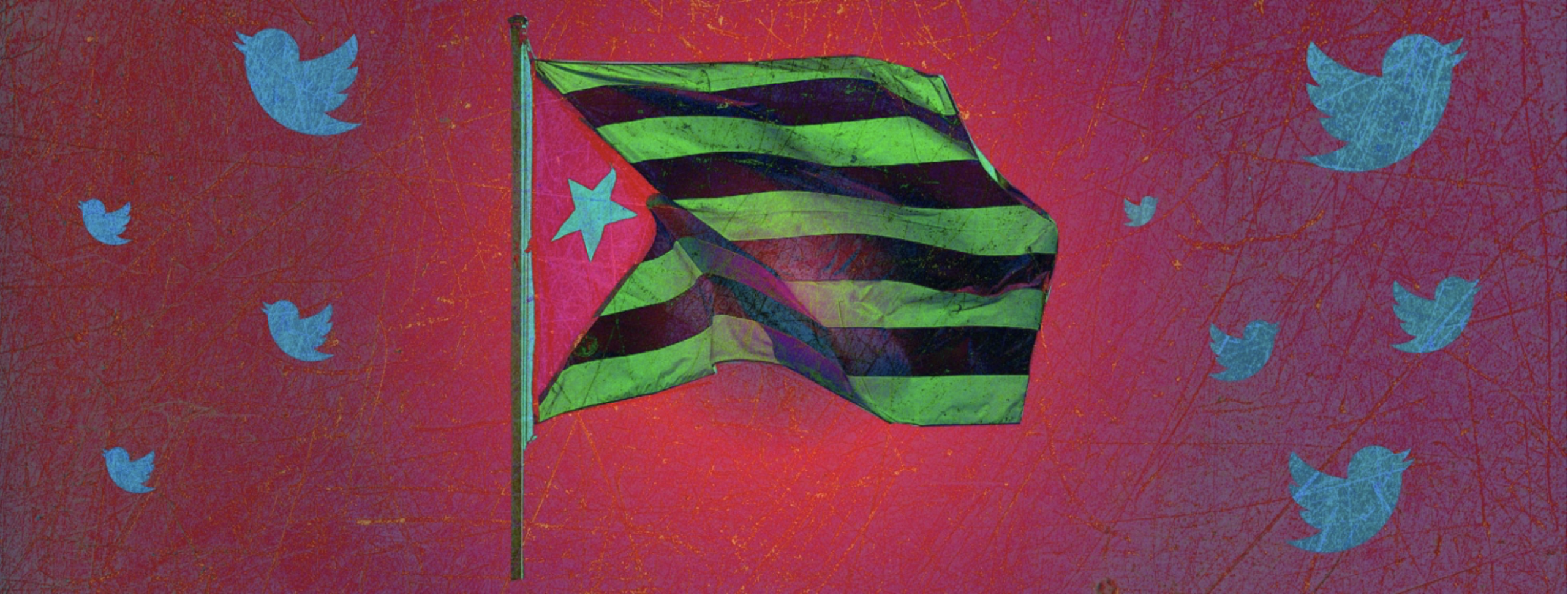Catalonia Twitter Takedown: Inorganic Campaign Pushed Pro-Independence Content
Accounts amplified pro-Catalan independence narratives in many different languages
Catalonia Twitter Takedown: Inorganic Campaign Pushed Pro-Independence Content

Accounts amplified pro-Catalan independence narratives in many different languages

A subset of Twitter accounts taken down by the company in June 2019 participated in an inorganic campaign to amplify pro-Catalan independence narratives, the DFRLab has confirmed. In addition to engaging in this inorganic campaign, some of the accounts also demonstrated signs of foreign influence.
After decades of separatist tensions, the Catalan Parliament declared independence from Spain in October 2017, following a referendum in which roughly 92 percent of the votes favored independence while roughly 3 percent were against it. When the Spanish Constitutional Court ruled the referendum illegal, Spain descended into its worst constitutional crisis in 40 years. As pro-Catalan independence leaders and activists clashed with the government in Madrid, a parallel battle unfolded on Twitter.
At the time, the DFRLab reported on various claims of “fake news” and suspicions of foreign influence leveled by leaders on both sides.

Twitter’s actions included the removal of 130 accounts in Spain that the platform described as “directly associated” with the Republican Left of Catalonia (ERC), a pro-Catalan independence party. According to Twitter’s blog post on the takedown, the accounts engaged in “spreading content about the Catalan Referendum” with the “intent to inorganically influence the conversation in politically advantageous ways.”
The Spain dataset belonged to a more expansive archive released by Twitter on state-backed foreign influence operations, as part of the platform’s attempt to promote greater transparency related to elections.
An Inorganic Hashtag Campaign
A network of accounts used the hashtag #FemXarxa to push pro-Catalan independence narratives. #FemXarxa received the most retweets of any hashtag in the dataset, at roughly 7,500 retweets. It was often accompanied by content highlighting Catalonia’s struggle for independence from Spain.

According to a website dedicated to the hashtag, the movement called on users to contribute by also amplifying pro-independence messages using the hashtag online.


The movement also asked users to mobilize on Twitter.
Xarxers, RECORDEU:
— #FemXarxa (@laxarxaxanante1) July 13, 2019
1.📩 Si voleu PROMO envieu-me privat. + de 5k NO.
2.🔁SEGUIR a tothom, si no ho feu els altres xarxers us deixaran de seguir.
3.🗣Utilitzeu el #FemXarxa per fer xarxa entre vosaltres.
4.⚠️Si detecteu trolls informeu-me.
SOU COLLONUTS/ES. 💪🎗
#FemPromo
The second most amplified hashtag, #11S, also related to the FemXarxa movement. This hashtag served the same purpose as #FemXarxa: an attempt to unify Catalans in advance of a pro-independence march on September 11. Additionally, some users employed the #11S hashtag to commemorate the 1714 Siege of Barcelona.
The third most amplified hashtag was #USVolemACasa. Users of the hashtag demanded the release (or the “return home,” more literally) of Jordi Cuixart and Jordi Sanchez, two Catalan pro-independence leaders. On October 16, 2017, Cuixart and Sanchez were jailed on charges of sedition.

Fifty seven of the accounts in the dataset were created on December 12, 2018, just five months ahead of Spain’s general election. The single account creation date suggested that these accounts were operating as part of the same network.
Signs of Foreign Interference
The breakdown of tweets according to the time posted suggested that some of the accounts in the dataset had posted in multiple languages other than Catalan. Furthermore, many of the accounts posted Catalan content in 2018, in the leadup to the Spanish general election in April 2019.

Breaking down the tweets according to language suggested that, in addition to Catalan, some of the tweets were in Spanish and Portuguese as well. “Und” tweets are unidentified tweets, which contained text that Twitter did not recognize as one of its 34 languages.

In addition, the DFRLab found that several of these accounts had Russian display names.

In November 2017, the Daily Beast reported that inauthentic Venezuelan and Russian accounts were responsible for a flood of content on Twitter related to the Catalan independence movement.
Sorting the accounts according to their “account language,” which users set themselves, revealed that the Spanish and Catalan accounts had the most reach in the dataset, while the Russian accounts had virtually zero.

Evidence of Mobilization

In addition to hashtags, the accounts also amplified several URLs.

The most retweeted URL was diada.assemblea.cat, which linked to a website dedicated to the National Day of Catalonia, an annual festival that commemorates the 1714 Siege of Barcelona. Pro-independence Catalans increasingly mark the holiday with protests.


Data on the app clients used to tweet and retweet the posts in the dataset indicated that, for the most part, the accounts did not use automation applications. Two automation apps, Botize and IFTTT, did appear in the data, but their use was limited to fewer than 100 tweets each.
Follow along for more in-depth analysis from our #DigitalSherlocks.

